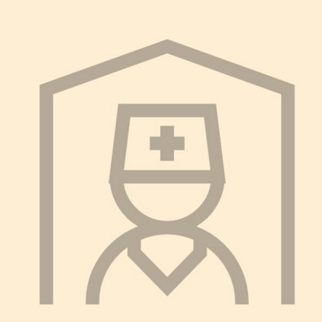Dr Etienne Boer, Specialist Physician at Mediclinic Louis Leipoldt, explains how hypertension — often called the "silent killer" — can quietly damage your health without obvious symptoms.
1. What is Hypertension?
Hypertension (elevated blood pressure in your arteries) is a condition when the pressure in your arteries is too high (usually 140/90 mmHg or higher). Raised blood pressure is defined as a consistent blood pressure above 140/90 mmHg. It is a common condition and can be serious if left untreated.
Blood pressure readings are given as systolic over diastolic pressure, e.g., 130/80 mmHg. The systolic blood pressure is the maximum pressure in the arteries when the heart contracts and pushes blood out through the aorta to the body. The diastolic blood pressure is the minimum pressure in the arteries when the heart relaxes (and this allows the heart’s chambers to fill with blood). Blood pressure is measured in millimetres of mercury (mmHg).
2. How common is high blood pressure worldwide?
Hypertension is a common condition, with almost two-thirds of people in low-to middle-income countries having raised blood pressure. Almost half of people with hypertension are unaware they have the condition. Fewer than half of those with hypertension are diagnosed and treated.
3. What are the symptoms of hypertension?
High blood pressure usually doesn't cause symptoms, so the only way to know if you have it is to get your blood checked. Hypertension is called a “silent killer” because most people don’t experience symptoms. High blood pressure is often detected only during routine checks or while investigating other medical issues.
In severe cases, very high blood pressure may cause:
- Headaches
- Dizziness
- Blurred vision
- Chest pain or tightness in chest
- Shortness of breath
- Nausea or vomiting
- Anxiety or restlessness
4. What other tests might your doctor recommend?
People diagnosed with high blood pressure (hypertension) typically require several routine tests, including:
- Electrocardiogram (ECG) to assess heart function
- Urianalysis (a urine test) to check for proteinuria and haematuria (protein or blood in the urine)
Blood tests to assess:
- kidney function (e.g., creatinine and eGFR)
- lipid profile (cholesterol)
- blood sugar (glucose) level.
These tests identify potential secondary causes for hypertension and assess for any related complications.
4 . Why is testing for hypertension important?
Prolonged high blood pressure (over years) significantly increases risk of serious health problems, particularly cardiovascular disease.
High blood pressure damages blood vessels, causing structural weakness, stenosis (narrowing) and cardiac work-load (increases strain on the heart). Generally, the risk of complications correlates directly with blood pressure severity.
Untreated high blood pressure can complicate and lead to:
- Myocardial infarction (heart attack)
- Angina pectoris (chest pain related to heart disease)
- Cerebrovascular accident (stroke)
- Transient ischaemic attack (a mini-stroke)
- Peripheral arterial disease
- Chronic kidney disease (kidney failure)
- Congestive heart failure
- Retinopathy (visual loss and blindness)
5. What are the causes of hypertension?
The causes of hypertension are broadly classified into two categories: primary (essential) hypertension and secondary hypertension. While the exact cause isn’t always clear, certain factors significantly increase the risk of developing primary (essential) hypertension:
- Has diabetes (particularly type 2 diabetes)
- Is of Black African or South Asian ethnicity
- Has a family history of hypertension
Has modifiable risk factors including:
- Obesity (being overweight)
- High sodium (salt) intake
- Physical inactivity
- Excessive alcohol consumption
- Chronic stress
- Cigarette smoking
6. How is high blood pressure treated?
- Lifestyle modifications including a healthy diet (particularly low salt intake), regular physical activity, weight management, alcohol moderation, smoking cessation and stress management form the first-line treatment for high blood pressure.
- If your hypertension persists despite lifestyle modifications, your doctor may prescribe “anti-hypertensive” medications with a target blood pressure reading of less than 130/80 mmHg.
7. What can I do to lower my blood pressure?
Lifestyle modifications play a crucial role in both lowering blood pressure and reducing cardiovascular risk. For some individuals with hypertension, these changes may eliminate the need for medication:
- Achieving/maintaining a healthy weight
- Limiting alcohol to recommended limits (<14 units weekly)
- Reducing dietary sodium (salt) intake
- Engaging in regular aerobic exercise
- Stopping smoking*
*While smoking cessation doesn't directly lower blood pressure, it significantly reduces cardiovascular and cerebrovascular risk. Hypertension and smoking are synergistic risk factors for:
- Cerebrovascular disease and accidents (strokes)
- Myocardial infarctions (heart attacks)
- Peripheral artery disease (PAD)
- Chronic kidney disease (kidney failure)
References :
Further publications on the topic
Doctors 1


